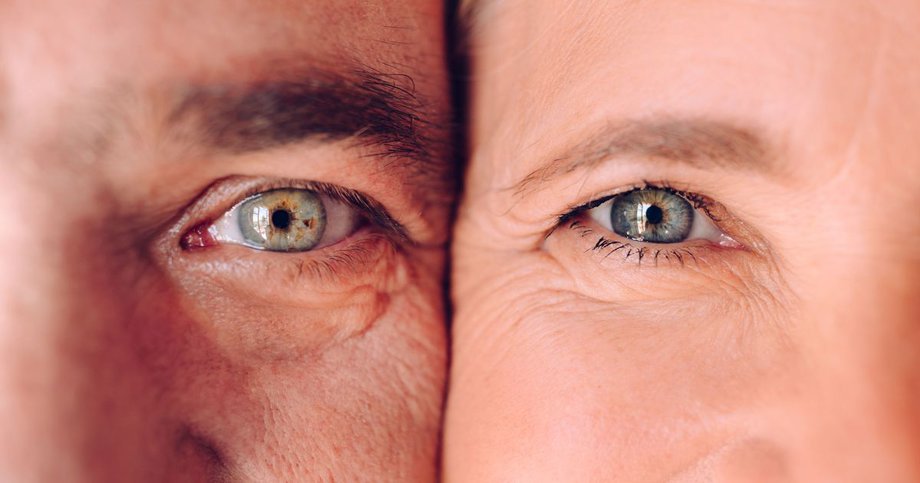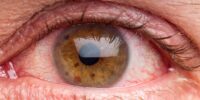What Is the Connection Between Eye Health and Aging

This article examines the connection between eye health and aging.
It explores the risk factors for age-related eye diseases, common eye conditions associated with aging, and the impact of aging on visual acuity.
Additionally, it discusses strategies for maintaining eye health as individuals age and highlights the importance of regular eye exams for older adults.
By adopting an academic style of writing that is objective and impersonal, this article aims to provide a comprehensive overview of the topic.
Key Takeaways
- Smoking increases the risk of age-related macular degeneration, cataracts, and other eye conditions.
- Poor nutrition, specifically a diet lacking in antioxidants and omega-3 fatty acids, raises the risk of certain eye diseases.
- Excessive exposure to UV radiation from the sun and indoor tanning contributes to the development of age-related eye diseases.
- Regular eye exams are crucial for detecting and managing age-related vision changes and common eye conditions.
Risk Factors for Age-Related Eye Diseases
The identification of risk factors for age-related eye diseases is crucial in understanding the relationship between eye health and aging. By identifying these risk factors, healthcare professionals can develop effective prevention methods to reduce the incidence and progression of age-related eye diseases.
Lifestyle choices play a significant role in the development of these diseases. For example, smoking has been strongly associated with an increased risk of age-related macular degeneration, cataracts, and other eye conditions. Poor nutrition, particularly a diet lacking in antioxidants and omega-3 fatty acids, has also been linked to an increased risk of certain eye diseases.
Additionally, excessive exposure to UV radiation, both from the sun and indoor tanning, can contribute to the development of age-related eye diseases. Identifying and addressing these lifestyle-related risk factors can help individuals maintain better eye health as they age.
Common Eye Conditions Associated With Aging
Cataracts, macular degeneration, and glaucoma are examples of common eye conditions that are frequently observed in older individuals. These conditions can significantly impact an individual’s vision and overall quality of life.
Despite their prevalence, there are various treatment options available for cataracts, including surgery to remove the clouded lens and replace it with an artificial one.
Macular degeneration, on the other hand, does not currently have a cure, but there are preventative measures that can be taken to reduce the risk of developing the condition. These include maintaining a healthy diet rich in antioxidants and essential nutrients, protecting the eyes from harmful UV rays, and regular eye exams to monitor any changes in vision.
Impact of Aging on Visual Acuity
Visual acuity tends to decline with age, leading to difficulties in perceiving fine details and distinguishing between objects. The effects of aging on the retina play a significant role in this decline.
As individuals age, the retina undergoes various structural and functional changes. These changes include thinning of the retina, reduced blood supply, and the accumulation of deposits, such as drusen, which can affect the clarity of vision.
Furthermore, the aging process also affects color perception. There is a gradual decline in the ability to discriminate between different hues and shades, known as age-related changes in color perception. These changes are thought to be linked to alterations in the photoreceptor cells and the neural pathways involved in color vision.
Overall, the impact of aging on visual acuity and color perception highlights the importance of regular eye examinations to detect and manage age-related vision changes.
Strategies for Maintaining Eye Health as You Age
One effective approach to preserve optimal vision as individuals grow older involves implementing a comprehensive eye care regimen that incorporates regular check-ups, healthy lifestyle choices, and protective measures against potential hazards. This approach is crucial because age-related changes in the eye can lead to conditions such as cataracts, macular degeneration, and glaucoma.
To maintain eye health as you age, consider the following strategies:
- Nutrition tips: Consuming a diet rich in antioxidants, vitamins A, C, and E, omega-3 fatty acids, and zinc can help protect against age-related eye diseases. Foods such as leafy greens, citrus fruits, fish, nuts, and seeds are beneficial for eye health.
- Lifestyle changes: Quitting smoking, managing chronic conditions like diabetes and hypertension, maintaining a healthy weight, and protecting your eyes from harmful UV rays by wearing sunglasses are important lifestyle changes that can support eye health.
- Protective measures: Taking breaks when working on digital devices, using proper lighting, and wearing protective eyewear during activities that pose a risk of eye injury are essential for preserving optimal vision as you age.
Implementing these strategies can help individuals maintain good eye health and reduce the risk of age-related visual impairments.
Importance of Regular Eye Exams for Older Adults
Regular eye exams are essential for older adults to detect and address potential age-related ocular conditions. These exams offer several benefits of early detection and help in implementing appropriate preventative measures.
Early detection allows for timely intervention and management of age-related ocular conditions, such as cataracts, glaucoma, and age-related macular degeneration. Regular eye exams enable healthcare professionals to monitor changes in visual acuity, screen for common eye diseases, and assess the overall health of the eyes. By identifying these conditions at an early stage, individuals can receive timely treatment, which may help in preventing or delaying further vision loss.
Furthermore, eye exams also provide an opportunity for healthcare providers to educate older adults about eye health and discuss preventative measures, such as wearing UV-protective eyewear, maintaining a healthy lifestyle, and managing chronic conditions that can affect eye health.
Overall, regular eye exams play a crucial role in promoting optimal eye health among older adults.
Frequently Asked Questions
Can Eye Health Be Maintained Through a Healthy Lifestyle and Diet?
Maintaining eye health through a healthy lifestyle and diet is possible. Age can have an impact on eye health, but there are measures that can be taken to protect vision.
Is It Normal for Vision to Deteriorate as We Age?
Vision deterioration is a common occurrence as individuals age, but aging is not the sole factor. Genetics also play a role in the deterioration of vision. Additionally, there is a correlation between eye health and overall health as individuals age.
How Can I Protect My Eyes From Harmful UV Rays?
Protective eyewear and regular eye exams are important in protecting the eyes from harmful UV rays. Wearing sunglasses with UV protection and scheduling regular eye exams can help prevent eye damage and maintain optimal eye health.
Are There Any Specific Exercises or Activities That Can Help Improve Eye Health?
Eye health exercises and natural remedies can potentially improve eye health. However, further research is needed to determine their effectiveness and to establish a clear connection between these practices and overall eye health.
Can Age-Related Eye Diseases Be Prevented or Slowed Down Through Early Detection and Treatment?
The prevention and slowing down of age-related eye diseases, such as macular degeneration, can be achieved through early detection and treatment. Advancements in cataract surgery have also contributed to improved eye health in aging individuals.









